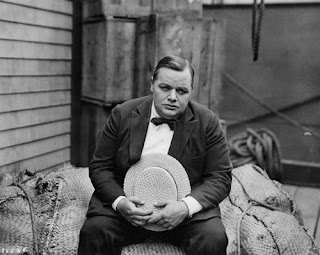Comedian Fatty Arbuckle had a sad and short life. Due to his raping scandal, he was banished from Hollywood. The poor soul was married three times but never had any children. Even though Fatty was divorced twiced, all three of his wives said he was a good man. Here is a break down of the three wives of Fatty Arbuckle...
MINTA DURFEE (1889-1975)
Minta was a minor silent screen actress. She met Roscoe Arbuckle when he was attempting to get started in theater, and the two married in August 1908. Durfee entered show business in local companies as a chorus girl at the age of 17. She was the first leading lady of Charlie Chaplin..
A regular performer on television, Durfee appeared on such shows as Noah's Ark (1956). She had minor roles in motion pictures including How Green Was My Valley (1941), Naughty Marietta (1935), Rose-Marie (1936), It's A Mad, Mad, Mad, Mad World (1963), The Unsinkable Molly Brown (1964), and Savage Intruder (1970). In later life, Durfee gave lectures on silent film and held retrospectives on her and her husband's pictures. She was surprised and excited by the renewed interest in silent film.
DORIS DEANE (1901-1974)










